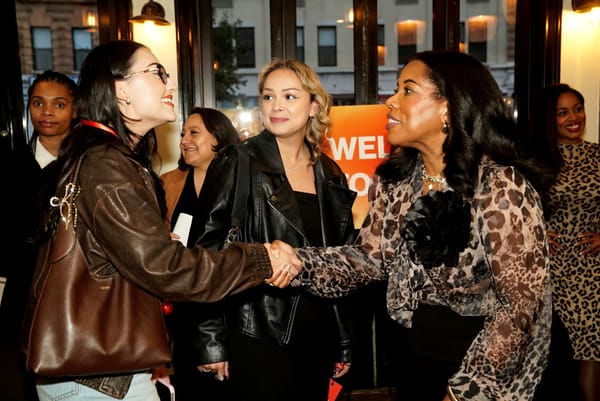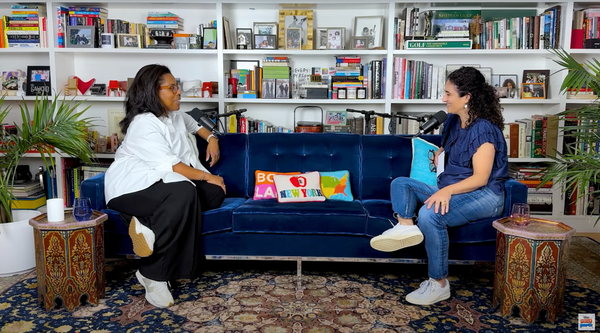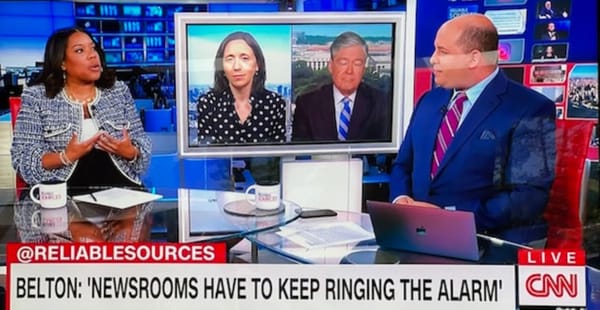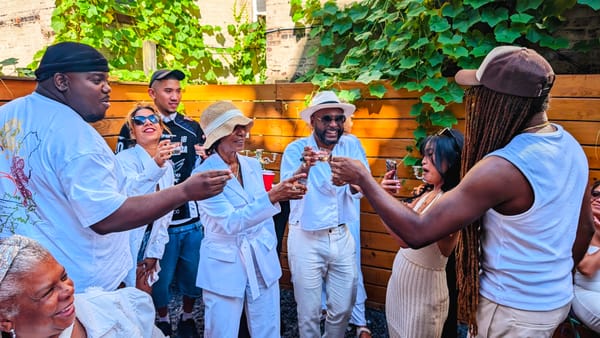Joy-Ann Reid Is the Latest Victim of 'The Great Regression'
Heads are rolling. They just happen to be the same hue.
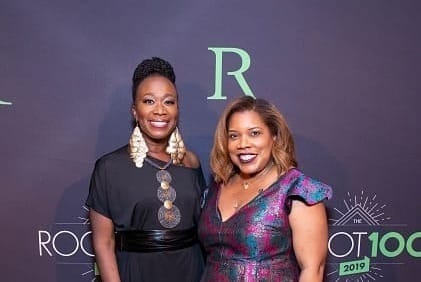
Because bad news doesn’t take breaks on weekends, the New York Times reported Sunday that Joy-Ann Reid’s “The ReidOut” is over at MSNBC. Oliver Darcy’s Status also reported that her staff has been laid off.
The show’s final episode will be tonight, per Reid on social media.
Reid is the latest Black woman to leave — either by choice or force — a position of visibility or power in media. It's all part of something I have called "The Great Regression," the big rollback of decades of progress in favor of a system that we already know doesn't work.
Reid's leaving was preceded by her former boss, MSNBC President Rashida Jones, former editorial director Nekesa Mumbi Moody at The Hollywood Reporter, and yours truly at HuffPost.
Alongside this, Reid also joins a special club of Black women who had shows on MSNBC, only to face cancellation after a few years. She shares space with Melissa Harris-Perry (who works in academia), Tiffany Cross (who now has a podcast), and Zerlina Maxwell, who had a show on Peacock and appeared on MSNBC. (She just moved to Italy and launched a Substack.)
I can imagine what Reid is going through now because I went through the same thing on a smaller scale. I.E., being inundated with messages and texts from across the industry, especially from other Black women, appalled that this has happened again. Much like for Reid, my friends and colleagues were ready to “ride at dawn” until I told them I was among those who chose to leave their post to save jobs and still love their old gig.
While the multitalented Reid will likely be fine professionally, it’s a travesty for our industry that so many Black women do not manage to last longer than 5 years in high-profile positions. And it wasn’t due to lack of experience, intelligence, creativity, or hard work because when you’re Black, you don’t get to these kinds of positions being a slouch.
Even with the now dreaded three-letter-world DEI — diversity, equity, and inclusion — involved, it doesn’t mean you’ll make it as a Black woman. It just means, hey, they took the job interview. You must still be twice, triple, or quadruple times as good as the mediocre competition. You still can’t make mistakes, have a bad week/month/year, or fail. And even if your performance is flawless, you could still lose it all from conditions beyond your control.
And before anyone says, “But other leaders who aren’t Black women have to be high performers too,” those individuals do not face the same reputational harm, criticism, or lack of opportunity we face when we are perceived as “failures.” No one hires a white man, allows him to stink up the place, and then issues an industry-wide fatwa against him to keep him from getting work again just because he had a loss. No one goes, “Welp, we tried it with a white man, and it didn’t work, so we’ll never try that again!” That’s not how that works. White men are allowed to fail upwards, sideways, every way but down. They have to be a Les Moonves-sized menace to get taken out, and even then, it takes decades for them to face any repercussions.
On Threads, I wrote: “Black [women] in media either walking away from roles by choice or being forced out is one of 2025's worst trends.”
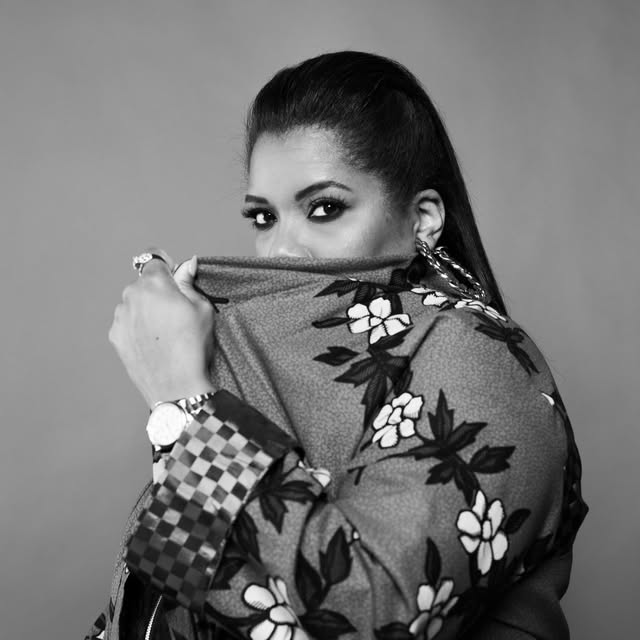
When I think of all the Black women and men in journalism I know who have left roles, were laid off, or are currently struggling to find work in an industry that is contracting and getting smaller, the message is clear — Diversity is something our industry does when it's under pressure or when organizations have “the money or time.” It’s not a real dedication to change. It’s not a genuine embrace of ideas and the simple fact that diversity is good business. Reaching and expanding into new audiences is good business. Covering stories and areas of interest of different communities is good for numbers. Why wouldn’t you want to appeal to as many segments of the population as you can, especially when America’s only becoming more diverse, not less? Saying no to diversity essentially means, “No, I don’t want your interest, time, or money.” Saying no to diversity means, “I don’t want to grow or innovate. I want to regress and shrink.” With its many problems and tragedies, capitalism holds one truth — if you want to make the most money, you need to appeal to the most people. If 40 percent of the U.S. population consists of “people of color,” by cutting out diversity, you’re essentially saying, “I don’t want money.”
And we should oblige the companies who make these decisions and not spend with them — not with our money or time.
For example, I haven’t watched MSNBC with any regularity since 2016. This was of no fault of Reid — who was an honoree on our Root 100 list at The Root when I was editor-in-chief. I quit over Joe Scarborough and Mika Brzezinski's normalization and platforming of then-candidate Donald Trump, among other things. I was a regular “Morning Joe” viewer and quietly walked away from the entire network. I also haven’t shopped at Target with any frequency in years, but what little shopping I did died completely after Target caved over Pride Month displays in 2023.
If you don’t want me as a customer, I’m happy not to be a customer. I won’t beg anyone to love me if they don’t. You either have enough common sense to know how to count, knowing that having more friends than enemies is always best as a brand, or you don’t. I have the same attitude about work — I don’t want to work for any place that wouldn’t have me. I’m a Black woman living with Bipolar disorder from the wilds of Florissant, Mo., outside of St. Louis. You’re either into this or you’re not. And it's okay if you’re not. I’ll just go where I am wanted, where my hard work will be appreciated, and where my track record of success and leadership is acknowledged.
Reid will go where it makes sense for her, where she is wanted and appreciated, and where her efforts will be respected. And I will be rooting for her, Jones, Moody, Maxwell, Harris, Cross, and me to continue to burn bright even as others wish someone would turn out our lights. But you can’t turn out a light that’s coming from within, so good luck stopping these suns from shining.

